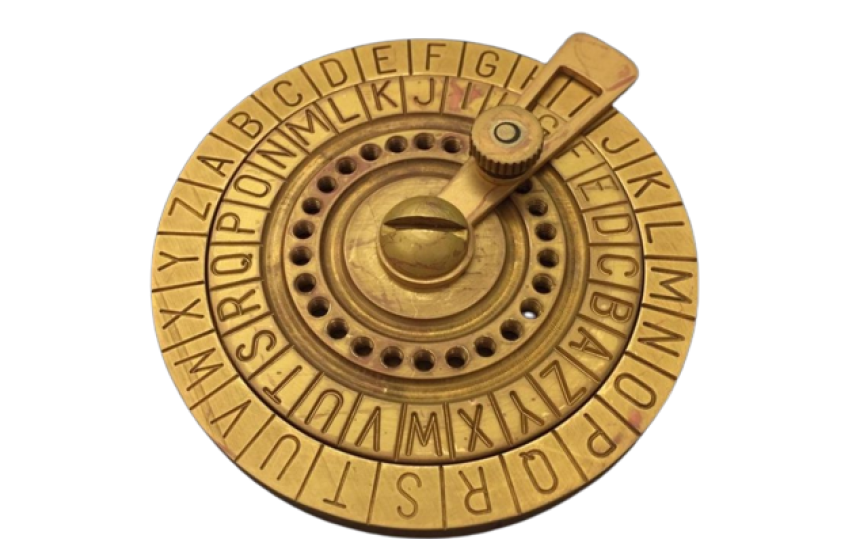
Caesar Cipher
The Caesar cipher is named after Julius Caesar, who used it with the intent of protecting his encrypted messages. There is very little information on Roman cryptography: the only notions concern the fact that Julius Caesar and Augustus used this particular encryption system in their correspondence with family members.
Only Suetonius, in the Life of the Twelve Caesars, a work of the 2nd century AD, provides us with information.Thanks to this important historian, we know that Caesar generally used a key of 3 for the cipher, as in the case of the military correspondence sent to the troops commanded by Quintus Tullius Cicero.
Suetonius recounts that Julius Caesar used a very simple mono-alphabetical number for his confidential correspondences, in which the clear letter is replaced by the letter that follows it three places in the alphabet: the letter A is replaced by D, the B by E and so away until the last letters which are encrypted with the first ones as in the following table (which refers to today’s international alphabet).
At the time it was safe because opponents often weren’t even able to read a plaintext, let alone an encrypted one; moreover, there were no cryptanalysis methods capable of breaking this code, however trivial. We also know others who used this cipher at the time of Caesar: Augustus, his nephew, used it with key 1, but without starting from the left in case of the end of the alphabet. So, he wrote B for A, C for B but used AA for Z.





